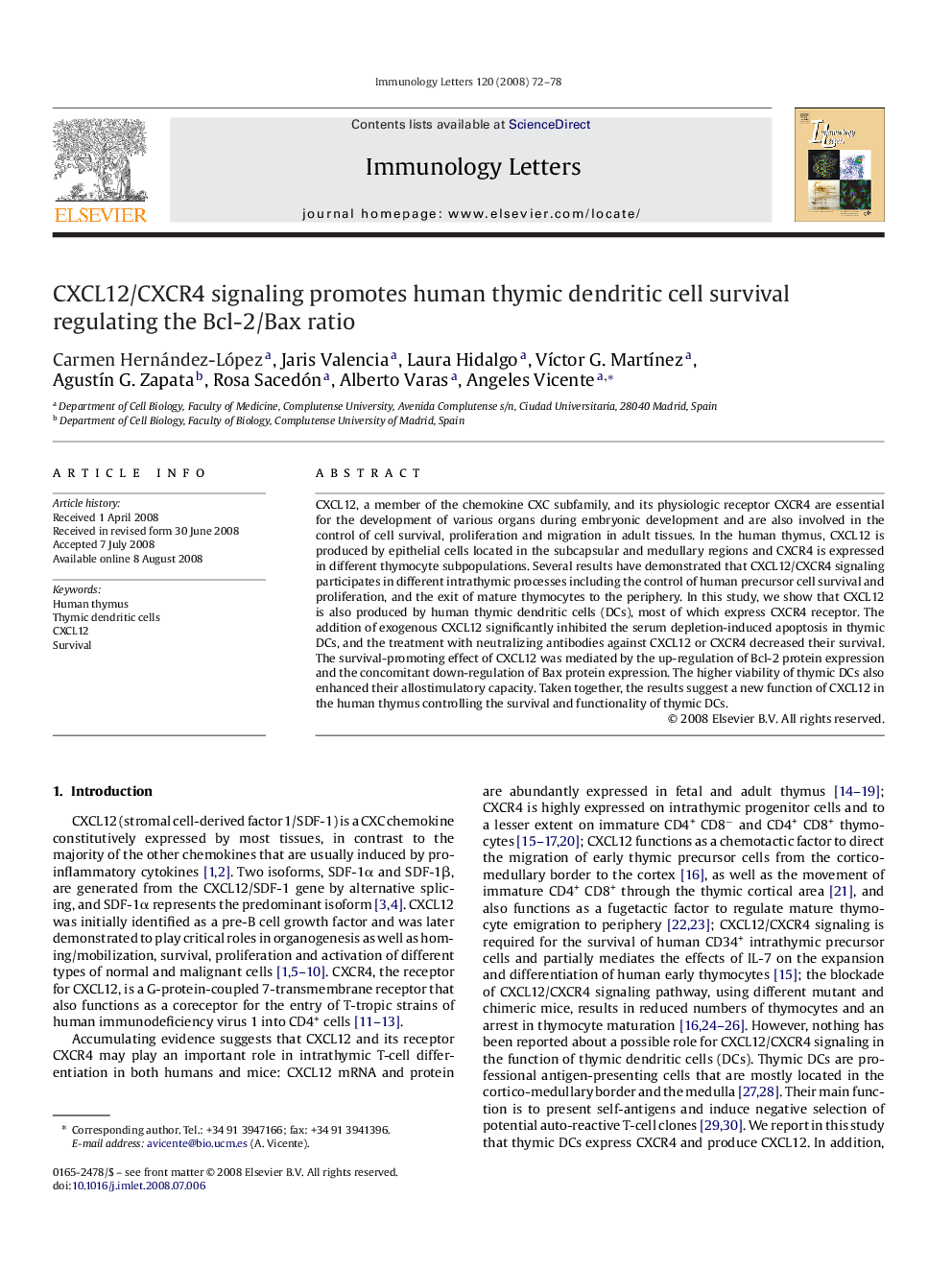| Article ID | Journal | Published Year | Pages | File Type |
|---|---|---|---|---|
| 3356052 | Immunology Letters | 2008 | 7 Pages |
CXCL12, a member of the chemokine CXC subfamily, and its physiologic receptor CXCR4 are essential for the development of various organs during embryonic development and are also involved in the control of cell survival, proliferation and migration in adult tissues. In the human thymus, CXCL12 is produced by epithelial cells located in the subcapsular and medullary regions and CXCR4 is expressed in different thymocyte subpopulations. Several results have demonstrated that CXCL12/CXCR4 signaling participates in different intrathymic processes including the control of human precursor cell survival and proliferation, and the exit of mature thymocytes to the periphery. In this study, we show that CXCL12 is also produced by human thymic dendritic cells (DCs), most of which express CXCR4 receptor. The addition of exogenous CXCL12 significantly inhibited the serum depletion-induced apoptosis in thymic DCs, and the treatment with neutralizing antibodies against CXCL12 or CXCR4 decreased their survival. The survival-promoting effect of CXCL12 was mediated by the up-regulation of Bcl-2 protein expression and the concomitant down-regulation of Bax protein expression. The higher viability of thymic DCs also enhanced their allostimulatory capacity. Taken together, the results suggest a new function of CXCL12 in the human thymus controlling the survival and functionality of thymic DCs.
